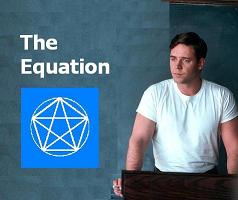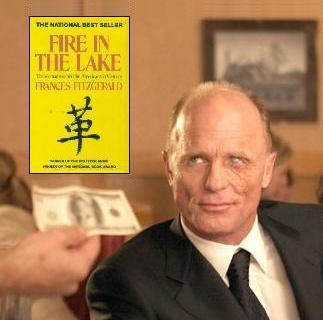Writings for Yom Kippur.
Month: October 2005
-
A Poem for Pinter
The Guardian on Harold Pinter, winner of this year’s Nobel Prize for Literature:
“Earlier this year, he announced his decision to retire from playwriting in favour of poetry,”
Michael Muskal in today’s Los Angeles Times:
“Pinter,
75, is known for his sparse and thin style as well as his etched
characters whose crystal patter cuts through the mood like diamond
drill bits.”Robert Stone, A Flag for Sunrise (See Jan. 25):
“‘That
old Jew gave me this here.’ Egan looked at the diamond….
‘It’s worth a whole lot of money– you can tell that just by looking–
but it means something, I think. It’s got a meaning, like.’‘Let’s see,’ Egan said, ‘what would it
mean?’ He took hold of Pablo’s hand cupping the stone and held
his own hand under it. ‘”The jewel is in the lotus,” perhaps
that’s what it means. The eternal in the temporal….’”“Modal logic was originally developed to investigate logic under the modes of necessary and possible truth. The words ‘necessary’ and ‘possible’ are called modal connectives, or modalities.
A modality is a word that when applied to a statement indicates
when, where, how, or under what circumstances the statement may be
true. In terms of notation, it is common to use a box [] for the modality ‘necessary’ and a diamond <> for the modality ‘possible.’”A Poem for Pinter

Commentary:
“Waka” also means Japanese poem or Maori canoe. (For instance, this Japanese poem and this Maori canoe.)For a meditation on “bang splat,” see Sept. 25-29.
For the meaning of “tick tick,” see Emily Dickinson on “degreeless noon.”
“Hash,” of course, signifies “checkmate.” (See previous three entries.)
-
Don’t Know Much About
History

Click to enlarge. “My card.”Sources:
Today’s online New York Times
and Sean Penn and Nicole Kidman
in “The Interpreter”“Is Heart of Darkness
the story of Kurtz or the story of Marlow’s experience of Kurtz?
Was Marlow invented as a rhetorical device for heightening the meaning
of Kurtz’s moral collapse, or was Kurtz invented in order to provide
Marlow with the centre of his experience in the Congo? Again a
seamless web, and we tell ourselves that the old-fashioned question
‘Who is the protagonist?’ is a meaningless one.”– Wayne C. Booth, p. 346 in
The Rhetoric of Fiction (1961),
as quoted by Paul Wake in
“The Storyteller in Chance“The dates of death for the two men
pictured in the Times clipping were
October 9 and October 10.Log24 entries for those dates contain allusions
to games of chance and games of skill.
See also yesterday’s entry. -
Storytelling
and Game Theory
Click on picture for details.
“Game theory is no doubt wonderful for telling stories. However, it
flunks the main test of any scientific theory: The ability to make
empirically testable predictions.”– “A Nobel Letdown in Economics,”
by Michael Mandel in Business Week -
Starflight
 “The crème de la crème
“The crème de la crème
of the chess world in ashow with everything
but Yul Brynner”
Mate in 2,
V. Nabokov, 1919,
“Starflight” themeToday is the feast of St. Yul Brynner,
who died on this date in 1985.“Head bent down over the guitar,
he barely seemed to hum;
ended “all come home”;
….
Yule– Yul log for the
Christmas-fire tale-spinner–
of fairy tales that can come true.
Yul Brynner.”– Marianne Moore,
“Rescue with Yul Brynner”Related material:
Starflight, a year ago today
Pleiades, by Ivan Bunin, winner of the Nobel Prize for Literature in 1933, whose birthday is todayNatasha’s Dance (Log24, Jan. 8, 2004)
Star! by John Gregory Dunne (NY Review of Books, Jan. 15, 2004)
-
Today’s Sermon:
Magical ThinkingOn this date– “In 1936,
the first generator at Boulder
(later Hoover) Dam began
transmitting electricity to Los Angeles.”
– Today in History, Associated Press“Brightness doubled
generates radiance.”
– Hexagram 30“I know what nothing means.”
– Maria Wyeth in Play It As It Lays
“Nothing is random.”
– Mark Helprin in Winter’s Tale
Maria Wyeth in Las Vegas:“… She thought about nothing. Her mind was a blank
tape, imprinted daily with snatches of things overheard, fragments of
dealers’ patter, the beginnings of jokes and odd lines of song
lyrics. When she finally lay down nights in the purple room she
would play back the day’s tape, a girl singing into a microphone and a
fat man dropping a glass, cards fanned on a table and a dealer’s rake
in closeup and a woman in slacks crying and the opaque blue eyes of the
guard at some baccarat table. A child in the harsh light of a
crosswalk on the Strip. A sign on Fremont Street. A light
blinking. In her half sleep the point was ten, the jackpot was on
eighteen, the only man that could ever reach her was the son of a preacher man, someone was down sixty, someone was up, Daddy wants a popper and she rode a painted pony let the spinning wheel spin.By
the end of a week she was thinking constantly about where her body
stopped and the air began, about the exact point in space and time that
was the difference between Maria and other. She
had the sense that if she could get that in her mind and hold it for
even one micro-second she would have what she had come to get. As
if she had fever, her skin burned and crackled with a pinpoint
sensitivity. She could feel smoke against her skin. She
could feel voice waves. She was beginning to feel color, light
intensities, and she imagined that she could be put blindfolded in
front of the signs at the Thunderbird and the Flamingo and know which
was which. ‘Maria,’ she felt someone whisper one night, but when
she turned there was nobody.She began to feel the pressure of
Hoover Dam, there on the desert, began to feel the pressure and pull of
the water. When the pressure got great enough she drove out
there. All that day she felt the power surging through her own
body. All day she was faint with vertigo, sunk in a world where great
power grids converged, throbbing lines plunged finally into the shallow
canyon below the dam’s face, elevators like coffins dropped into the
bowels of the earth itself. With a guide and a handful of
children Maria walked through the chambers, stared at the turbines in
the vast glittering gallery, at the deep still water with the hidden
intakes sucking all the while, even as she watched, clung to the
railings, leaned out, stood finally on a platform over the pipe that
carried the river beneath the dam. The platform quivered.
Her ears roared. She wanted to stay in the dam, lie on the great
pipe itself, but reticence saved her from asking.‘Just how long
have you been here now,’ Freddy Chaikin asked when she ran into him in
Caesar’s. ‘You planning on making a year of it? Or what?’”Related material
New York Times Book Review
and Log24, July 15, 2004:
 A quotation that
A quotation that
somehowseems relevant:
O the mind, mind has mountains,
cliffs of
fall
Frightful, sheer, no-man fathomed.
Hold them cheap
May who
ne’er hung there. -
In memory of Jacques Derrida,
who died one year ago today:A History of Death

References:
1. Fire in the Lake, by Frances FitzGerald
2. A History of Violence, a film by
David Cronenberg
3. The Gift of Death, by Jacques Derrida
Related material:
-
Seven is Heaven

“Love is the shadow that ripens the vine.
Set the controls for the heart of the Sun.
Witness the man who raves at the wall
Making the shape of his questions to Heaven.
Knowing the sun will fall in the evening,
Will he remember the lessons of giving?
Set the controls for the heart of the Sun.
Set the controls for the heart of the Sun.”– Roger Waters, quoted in
Allusions to Classical
Chinese Poetry in Pink Floyd
